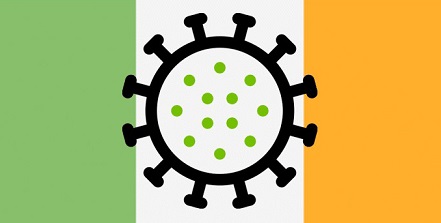JN.1 Leading Rise In COVID-19 In Ireland With New Symptoms Of Insomnia And Anxiety Becoming Prevalent, Hinting At Possible Enhanced Neurotropism!
Nikhil Prasad Fact checked by:Thailand Medical News Team Apr 19, 2024 1 year, 9 months, 3 weeks, 6 days, 8 hours, 50 minutes ago
COVID-19 News: In recent updates, health authorities in Ireland have issued warnings about a significant rise in COVID-19 cases attributed to the JN.1 variant. This variant, characterized by unique mutations, has become a cause for concern due to its rapid spread and emergence as a predominant strain globally.
 JN.1 Leading Rise In COVID-19 In Ireland With New Symptoms Of Insomnia
JN.1 Leading Rise In COVID-19 In Ireland With New Symptoms Of Insomnia
And Anxiety Becoming Prevalent
Rise in JN.1 Variant Cases
The Health Protection Surveillance Centre (HPSC) has reported a surge in confirmed cases of the JN.1 Covid variant, totaling 1,433 in Ireland. This increase, from the previously confirmed 1,264 cases, reflects a concerning trend that health officials are closely monitoring. The rapid rise in cases since November 2023 indicates the heightened transmissibility of this variant.
https://www.hpsc.ie/a-z/respiratory/coronavirus/novelcoronavirus/surveillance/summaryofcovid-19virusvariantsinireland/SARS-CoV-2_variant_report_20240416.pdf
Out of these instances, 497 (representing 34.7%) were linked to outbreaks within hospital or healthcare environments. The prevalence of JN.1 and its related subtypes is now notable in the sequenced cases within Ireland, constituting a substantial 91.0% between week 8 and week 12 of 2024.
It was also noted that there have been 5,754 COVID-19 cases confirmed as infected with ‘XBB.1.5-like’ lineages to date in Ireland.
According to local Irish
COVID-19 News coverages, hospitals and clinics are beginning to see a rise in both outpatient visits and also admissions due to rising COVID-19 infections.
Variant Characteristics and Global Impact
The JN.1 variant, a sub-lineage of the BA.2.86 strain, first detected in Israel in August 2023, has since gained prominence worldwide. Notably, the World Health Organization (WHO) identified JN.1 as a Variant of Interest due to its rapid rise and certain antigenic advantages, although current data suggests no significant impact on vaccine effectiveness or disease severity compared to other variants. The variant's genetic makeup, including mutations in the spike protein, may contribute to its increased transmissibility.
Symptoms Associated with JN.1 Variant
While the JN.1 variant shares common COVID-19 symptoms such as cough, headache, and fatigue, recent observations by the UK's Office for National Statistics highlight two new symptoms: insomnia and anxiety. These additions to the symptom list underscore the evolving nature of the virus and the need for vigilant monitoring of potential indicators. Insomnia and anxiety can significantly impact an individual's well-being and may warrant early intervention and support.
;Recognized COVID-19 Symptoms
The Health Service Executive (HSE) provides a comprehensive list of COVID-19 symptoms, including:
-Runny nose
-Cough
-Headache
-Weakness or tiredness
-Muscle ache
-Sore throat
-Trouble sleeping
-Worry or anxiety
These symptoms vary in severity and presentation, making it crucial for individuals to remain vigilant and seek medical advice if they experience any concerning signs, especially in the context of emerging variants like JN.1.
Some experts are concerned that the newer JN.1 sub-lineages could be possessing enhanced neuro-tropism properties hence explaining for the newer symptoms like anxiety and insomnia along headaches etc.
Importance of Prompt Action and Testing
Individuals experiencing any COVID-19 symptoms, especially those newly associated with variants like JN.1, are advised to take prompt action, including:
-Self-Isolation: Stay at home and avoid contact with others for 48 hours after symptoms subside.
-Testing: Undergo testing if symptoms persist or worsen, following local testing guidelines and protocols.
-Seeking Medical Advice: Consult healthcare professionals for guidance on symptom management and potential treatment options.
In response to the ongoing challenges posed by COVID-19 variants, public health authorities emphasize the importance of adherence to preventive measures.
Conclusion: Navigating the Evolving Landscape of COVID-19
As Ireland experiences a resurgence in COVID-19 cases attributed to the JN.1 variant, public awareness, proactive symptom monitoring, and vaccination efforts assume critical roles in mitigating transmission and safeguarding public health. By staying informed and actively participating in preventive measures, individuals and communities contribute to the collective resilience against emerging challenges posed by evolving COVID-19 variants. Continued collaboration between healthcare professionals, public health agencies, and the general population is essential in navigating the dynamic landscape of the pandemic and fostering a healthier, more resilient society.
For the latest COVID-19 News, keep on logging to Thailand Medical News.
